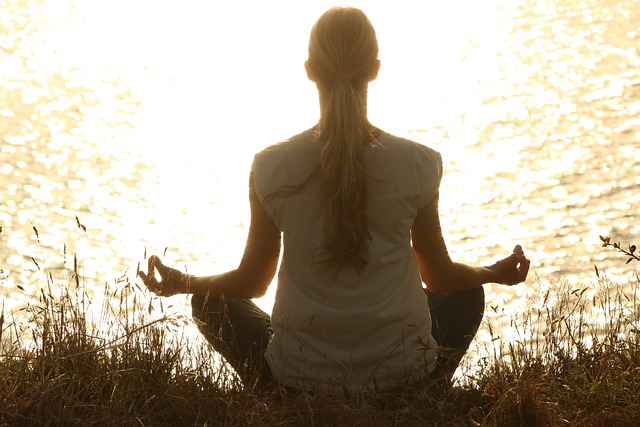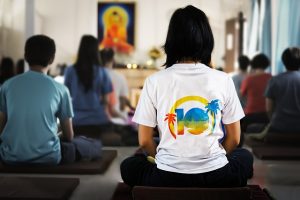 A new study has found that a surprising number of people experience altered states of consciousness while practicing yoga, mindfulness, meditation and breathwork, and some of these experiences are very negative.
A new study has found that a surprising number of people experience altered states of consciousness while practicing yoga, mindfulness, meditation and breathwork, and some of these experiences are very negative.
The Harvard Gazette is reporting on the study which found that entering altered states during these practices is much more common than previously thought. Of the 3,135 adults in the U.S. and U.K. who completed an online questionnaire, 45 percent reported experiencing an altered state at least once in their lives.
An altered state is defined as any state that is significantly different from a normal waking state, such as hypnosis, dreaming, falling unconscious due to anesthesia, drugs, etc.
As the study details, popular practices of mindfulness, yoga, breathwork and meditation draw on contemplative traditions that seek to produce altered states intended to not just enhance well-being but to trigger transformative experiences that cause enduring changes in a person’s sense of self and the world around them.
“These transformations are often associated with a type of altered state of consciousness we characterize as emergent phenomena (EP): sudden unusual mental or somatic experiences often interpreted as spiritual, mystical, energetic, or magical in nature. The cognitive and behavioral shifts associated with EP may include a decreased fear of death, diminished interest in dogma and traditional religion, and a rejection of materialistic lifestyles.”
In the survey, respondents listed a variety of effects of these altered states, including:
• derealization (17%)
• unitive experiences (15%)
• ecstatic thrills (15%)
• vivid perceptions (11%)
• changes in perceived size (10%)
• bodily heat or electricity (9%)
• out-of-body experiences (8%)
• perception of non-physical lights (5%).
 A surprisingly large number of respondents (13%) reported negative reactions to these altered states. These reactions included feelings of misery, sadness, and existential discomfort. An alarming number (1.1%) described their suffering as “life-threatening”. Of that number, 63 percent did not seek help for their suffering.
A surprisingly large number of respondents (13%) reported negative reactions to these altered states. These reactions included feelings of misery, sadness, and existential discomfort. An alarming number (1.1%) described their suffering as “life-threatening”. Of that number, 63 percent did not seek help for their suffering.
“Rather than being extremely unusual and rare, our study found that altered states of consciousness are a common variant of normal human experience,” said senior author Matthew D. Sacchet, the director of the Meditation Research Program at Massachusetts General Hospital and an associate professor of psychiatry at Harvard Medical School.
“However, we’ve found that those who experience negative outcomes related to these altered states often do not seek help, and that clinicians are poorly prepared to recognize or support these kinds of experiences. This has contributed to what might be considered a public health issue, as a certain proportion of people have difficulty integrating their experiences of altered states into their existing conceptions of self and reality.”
While concerning, these findings are not new. Other studies on the effects of meditation, particularly since the advent of meditation apps such as Headspace and Calm, have also found a high number of negative experiences among practitioners. Brown University’s Dr. Willoughby Britton, the world’s leading authority on the negative effects of meditation and the founder of Cheetah House, which is dedicated to helping people who are suffering from negative psychological experiences during meditation, has conducted groundbreaking research into this area.
“The most common [negative reactions] are disorganized arousal – hyper arousal like panic, agitation, insomnia, loss of appetite, involuntary movement, traumatic memory re-experiencing; or hypo arousal – dissociations such as feeling outside body, like you don’t exist, loss of emotions,” she said.
Research such as this will go a long way in informing the public about the risks of popular practices that can induce altered states, such as mindfulness and yoga. At present, this information is not widely known. In fact, researchers at the Meditation Research Program found that of the people who participated in the most recent study, only 47 percent had heard of the risks of these practices before filling out the questionnaire.
Sacchet is wisely calling for more research.
© All Rights Reserved, Living His Life Abundantly®/Women of Grace® http://www.womenofgrace.com









